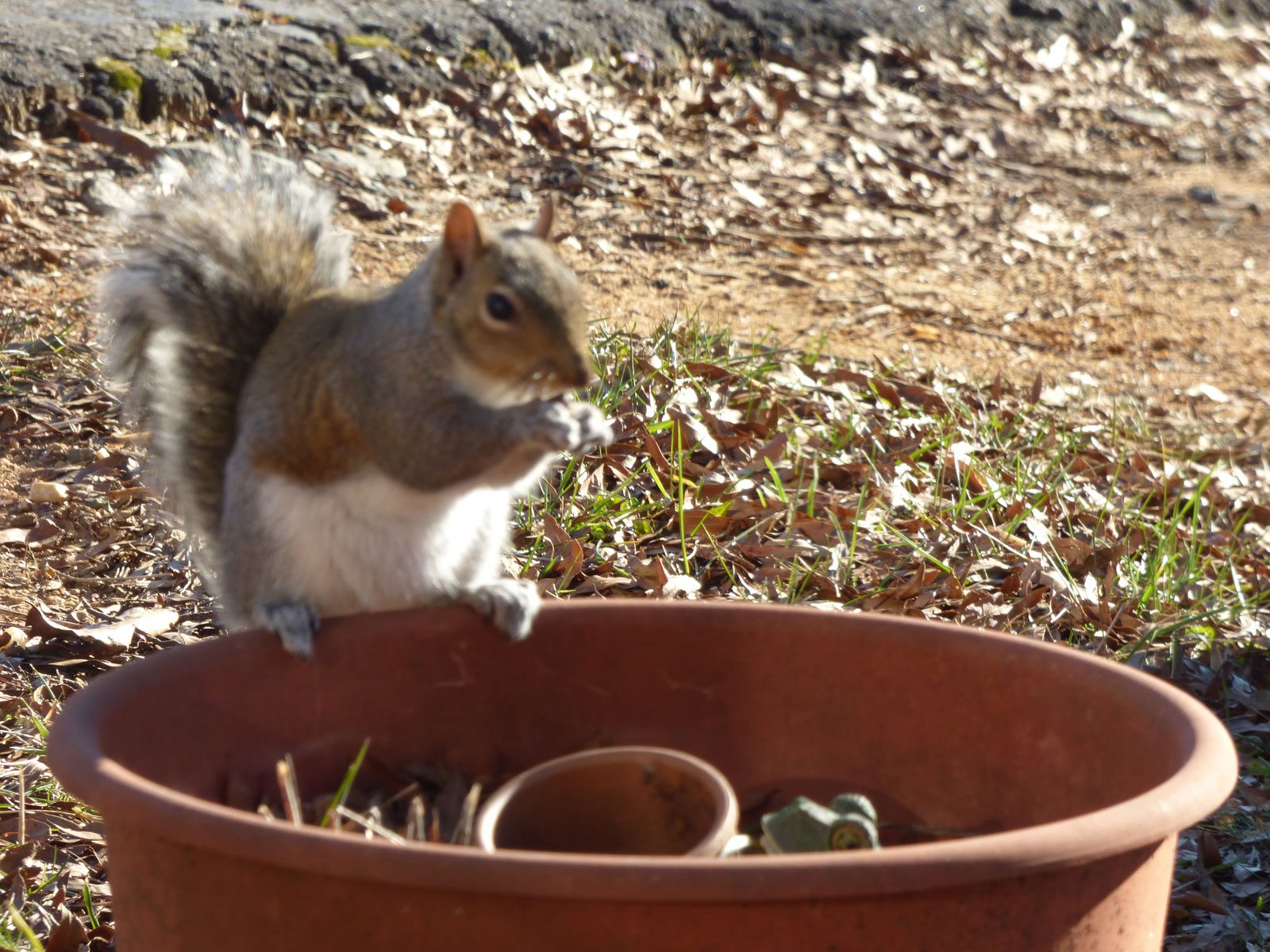Squirrels are a common sight in backyards, flitting through trees and burying nuts. They might chase each other playfully, but for gardeners, these adorable creatures can become a real headache.
While their antics can be entertaining, squirrels love to dig and forage. This can quickly turn your carefully cultivated flower beds into a disaster zone. Imagine uprooted plants, scattered seeds, and frustrated gardeners left picking up the pieces.
If you’ve found yourself battling these persistent pests, don’t despair! This comprehensive guide will equip you with the knowledge and tools to fight back.
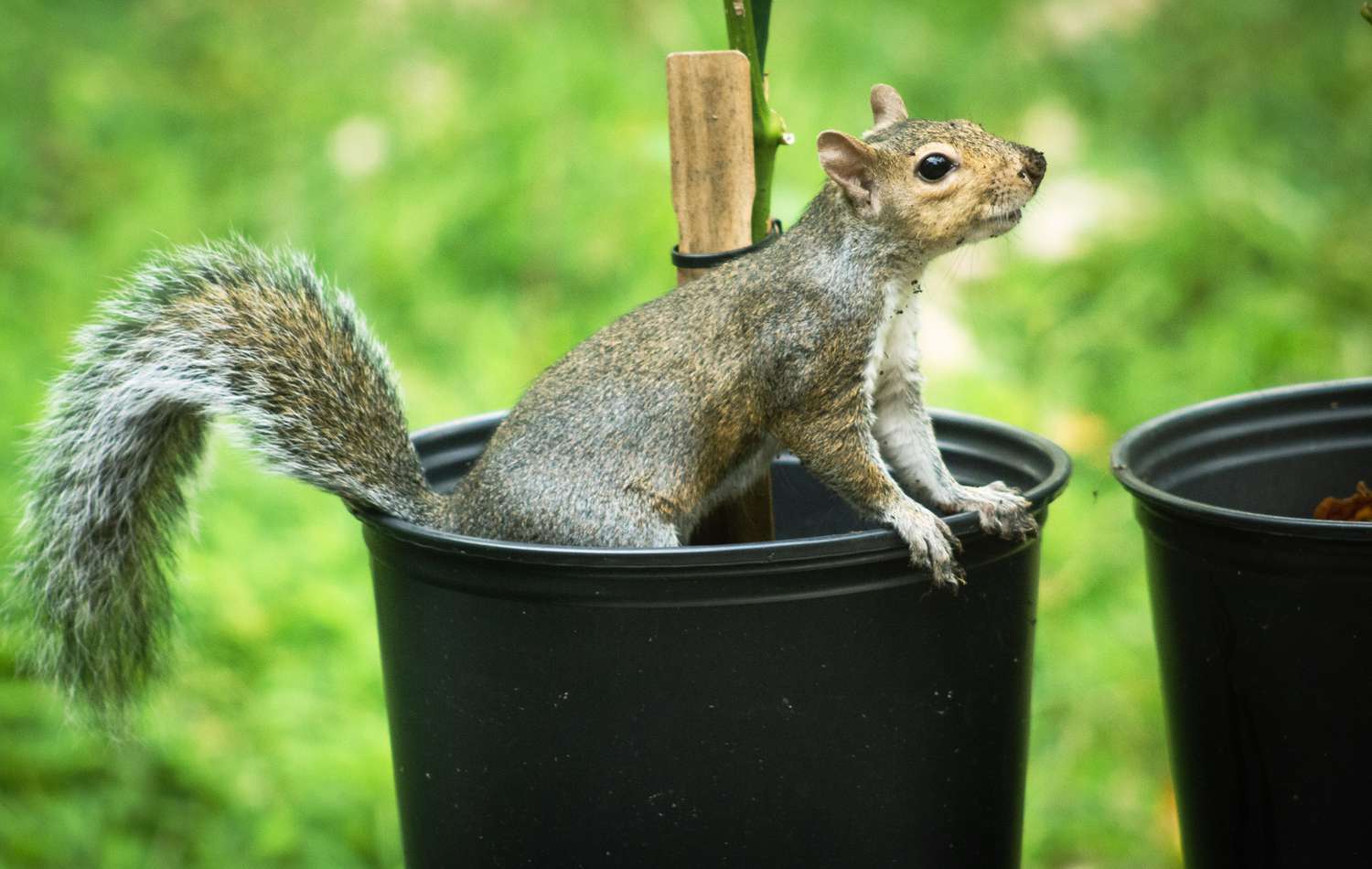
Understanding Squirrels’ Behavior: Decoding Their Motives
To effectively deter squirrels from your flower pots, it’s essential to understand their motivations and behaviors. Squirrels are omnivorous creatures, consuming a diverse range of food sources, including nuts, seeds, fruits, and insects. Their keen sense of smell leads them to buried treasures, and the seeds and bulbs you’ve carefully planted in your flower pots can easily catch their attention as potential food caches.
Digging is a natural behavior for squirrels, as they bury food for later consumption. Unfortunately, your flower pots may appear as ideal locations for these hidden stashes. Squirrels are also territorial creatures, and your flower pots may be seen as part of their territory, prompting them to mark and defend them as their own.
Preventative Measures: Protecting Your Plants from the Start
Prevention is always the best approach when dealing with potential pests, and there are several effective measures you can take to discourage squirrels from approaching your flower pots in the first place.
-
Covering the Soil: Employ physical barriers to deter squirrels from digging in your flower pots. Chicken wire, hardware cloth, or plastic mesh placed over the soil surface can effectively block their access and protect your plants from disturbance.
-
Planting Thorny Plants: Surround your flower pots with plants that have thorns or prickly stems, such as roses, barberry bushes, or holly. These natural deterrents can discourage squirrels from approaching, as they don’t appreciate the discomfort caused by the thorns.
-
Using Strong-Smelling Substances: Squirrels have a sensitive sense of smell, and certain strong odors can repel them. Sprinkle cayenne pepper, garlic powder, or predator urine around your flower pots to create an unpleasant environment for squirrels. These substances emit scents that squirrels find offensive, making your flower pots less appealing.
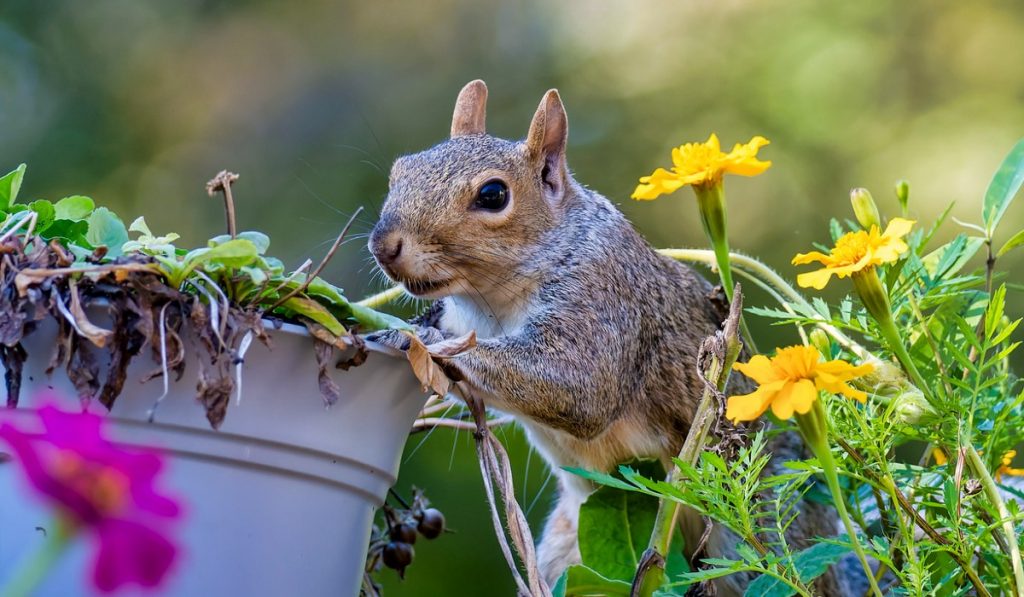
Repellent Solutions: Discouraging Squirrels When Prevention Isn’t Enough
In cases where preventative measures alone are not sufficient, repellents can provide an additional layer of protection for your flower pots. A variety of commercial repellents are available, typically in the form of sprays, granules, or bars. These products often contain ingredients that mimic predator scents or unpleasant tastes, effectively deterring squirrels from approaching.
-
Commercial Repellents: When selecting a commercial repellent, consider the type of plants you have in your flower pots, as some repellents may be harmful to certain plants. Follow the instructions on the product label carefully and apply the repellent regularly, especially after rain or irrigation, as these can wash away the repellent’s effectiveness.
-
Homemade Repellents: If you prefer a more natural approach, you can create your own repellents using ingredients like spicy peppers, garlic, or ammonia. Mix these substances with water and spray them around your flower pots. While homemade repellents may not be as potent as commercial ones, they can still provide a level of deterrence.
-
Motion-Activated Devices: For a more interactive approach, consider using motion-activated sprinklers or noisemakers. These devices emit a sudden burst of water or noise when they detect movement, startling squirrels and discouraging them from approaching your flower pots.
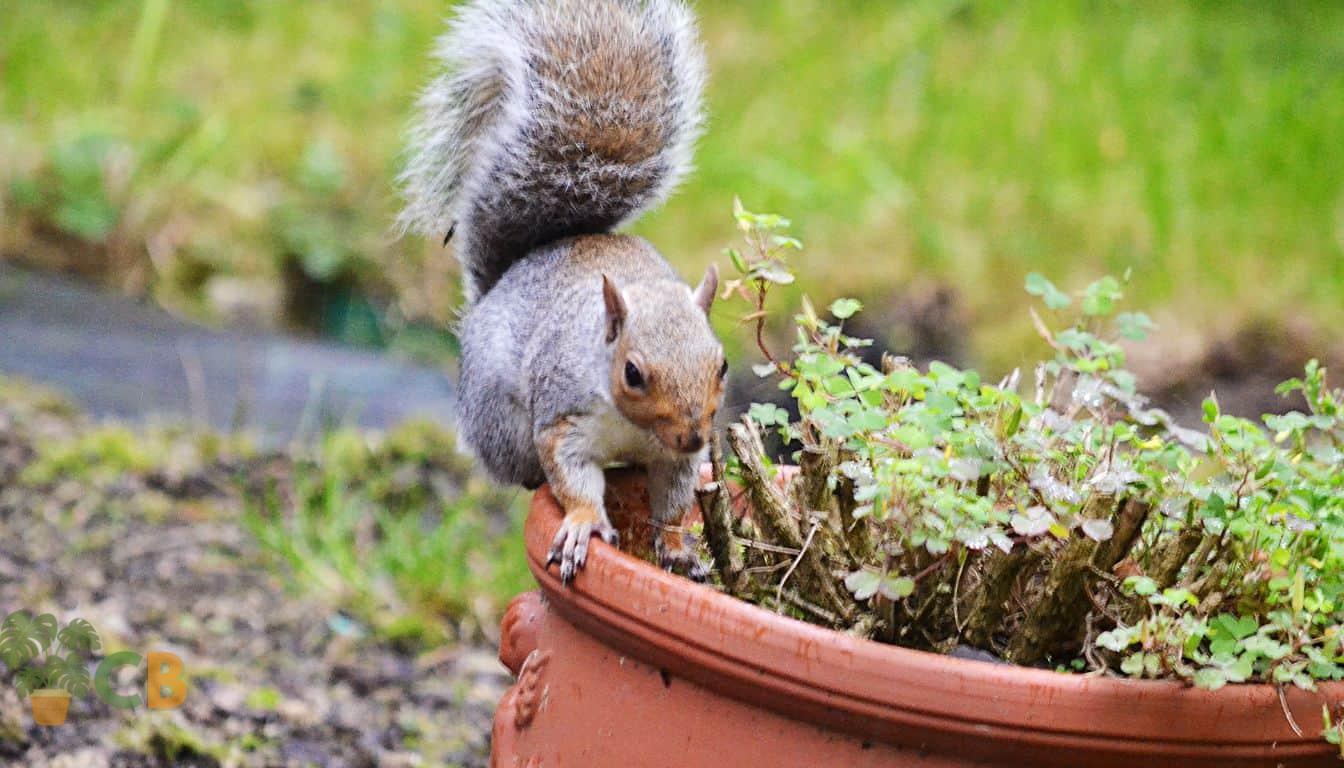
Additional Tips and Considerations: Enhancing Your Squirrel-Proofing Strategy
To further enhance your squirrel-proofing strategy, keep these additional tips in mind:
-
Timing is Crucial: Apply repellents regularly, especially after rain or irrigation, as they may wash away their effectiveness.
-
Rotate Repellents: Alternate between different repellents to prevent squirrels from becoming accustomed to any particular scent or taste. This keeps them guessing and reduces the likelihood of them developing a tolerance to any one repellent.
-
Address Underlying Issues: If squirrels are a persistent problem, consider addressing potential food sources in your yard, such as fallen nuts or unsecured bird feeders. Eliminating these readily available food sources can make your flower pots less attractive to squirrels.
Protecting Your Garden Sanctuary and Enjoying Your Blooms
and a bit of patience. By understanding squirrel behavior, implementing effective strategies, and adapting your approach as needed, you can create a garden sanctuary where your plants can thrive without the interference of these mischievous creatures. Remember, consistency and a proactive approach are key to deterring squirrels and protecting your precious blooms.
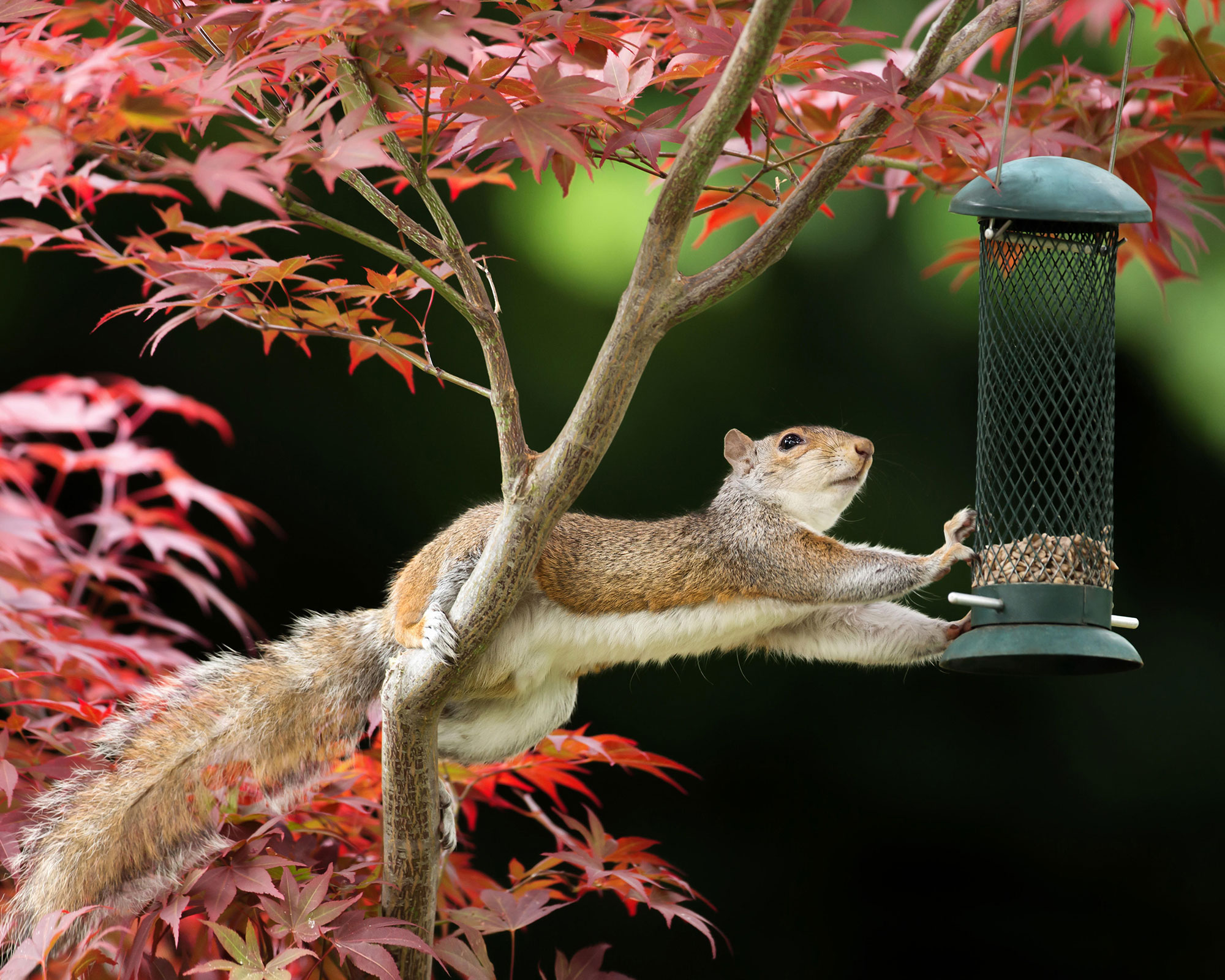
Celebrating Success and Embracing Harmony with Nature
Successfully keeping squirrels out of your flower pots allows you to reap the rewards of your gardening efforts. Witnessing your plants flourish, their vibrant blooms adding a touch of beauty to your outdoor space, can bring immense satisfaction.
However, it’s important to remember that squirrels are a vital part of the natural ecosystem. They play a role in seed dispersal and plant propagation. By employing humane and non-lethal deterrents, you can find a balance between protecting your plants and respecting the role these creatures play in the environment.
Sharing Your Knowledge and Inspiring Others
Gardening is a shared passion for many, and the challenges associated with deterring unwanted pests are common experiences. By sharing your knowledge and successful strategies with fellow gardeners, you can inspire others to create thriving gardens where both plants and wildlife can coexist peacefully.
Document your journey, the methods you used, and the results you achieved. Share your experiences online, in gardening forums, or with your local gardening community. By inspiring others, you can contribute to a collective knowledge base of effective and sustainable solutions for deterring squirrels and protecting gardens.
